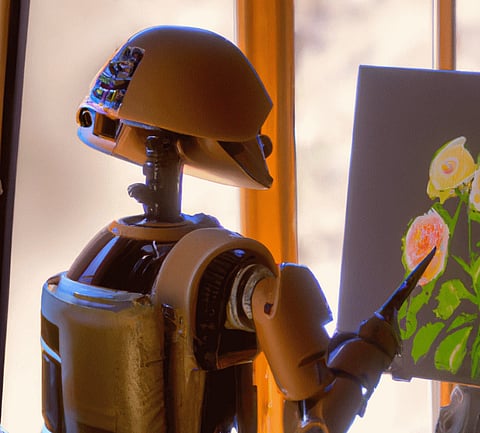
- HEADLINES
- NEWS
- PAGE THREE
- COMMENTARY
- BUSINESS
- LIFE
- ACTION
- GLOBAL GOALS
- SNAPS
- DYARYO TIRADA
- MORE

Microsoft announced on Thursday that it would integrate OpenAI's soon-to-be-released Dall-E 3 image creation tool into its Bing search engine, in its latest attempt to compete with Google using artificial intelligence.
OpenAI created two versions of Dall-E, which foreshadowed the tremendous surge in interest in generative AI that occurred when it launched ChatGPT late last year.
Dall-E generates digital images from natural language descriptions using machine learning technology, and the third edition, expected out in October, will integrate ChatGPT to make it easier for consumers to acquire what they want.
In February, Microsoft integrated the ChatGPT-like generative AI interface to Bing, allowing users to obtain conversational responses to their queries rather than just links to websites.
Dall-E has not been without controversy, with artists claiming that OpenAI illegally utilized their work in developing their system.
To reassure potential consumers, Microsoft announced in September that it will compensate any legal damages incurred by customers who use Copilot, Bing Chat and other AI services as long as they apply built-in precautions.
Microsoft has made significant investments in AI, most notably a $10 billion investment in its partnership with OpenAI, and is now attempting to monetize this technology by incorporating it into its products.
On Thursday, the Redmond, Washington-based company also announced that the Bing bot could now utilize previous discussions to suggest more appropriate responses to fresh requests from the same user.
This is a significant advancement because generative AI software is sometimes chastized for its lack of "memory," forcing users to repeat information each time they use it, which they would not do when engaging with a human.
The shortage of RAM was seen as a security feature, and Microsoft stated that the update would be optional. Microsoft also announced on Thursday that its "Copilot" AI assistant, which is also powered by OpenAI technology, will be released on 1 November.
